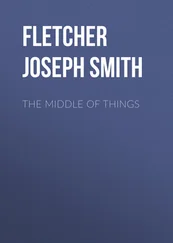Today, when I arrived at the house of Moisés, Elias, and the cook, they were all still in bed. I knocked on the door, I called, I knocked, and I sat down on the stone bench outside the house of the man shut up in a room writing. A young man passed by who seemed to be about forty years old and whom I didn’t know, for I’ve lost track of those who are born and die or move away, of the children and grandchildren of this or that person, and of the great-grandchildren and great-great-grandchildren of this or that person whom I did know, yes, with them I spun many tops and gleaned many olives. A young man passed by whom I didn’t have the patience to ask whose son are you? whom I didn’t have the patience to ask whose grandson are you? whom I didn’t have the patience to ask whose great-grandson are you? A young man passed by who greeted me very politely and told me, in almost a whisper, to tell José not to come back into town anytime soon, because the devil meant to do him more harm, because the devil had a grudge against him and meant to do him more harm. I didn’t ask the young man how he knew this, I merely said yes, I’d give him the message. The young man was passing by the fountain’s weak trickle when I heard the lock turn in the door to the brothers’ house. It was the bleary-eyed cook. I handed her a sack of late-season peas and went in. The brothers were drinking coffee and eating some odd-looking biscuits, shaped like pacifiers. The thin white hair of both Elias and Moisés was uncombed, and it was the latter who told me the kid won’t let us sleep. Elias whispered into his brother’s ear and Moisés turned to me and repeated she doesn’t sleep at night, but if you look at her now, she’s sleeping like a princess. And indeed she was. The cook’s house wasn’t very big. The largest room was the kitchen; it had a fireplace with a fire that was always lit and surrounded by pots, a washbasin, a table, and a sink, and the walls were covered with all sorts of enamel, aluminum, and even copper pots and pans. A door in the kitchen led to the backyard, where Moisés kept a cabbage patch that was always luxuriant, thanks to all the manure it received, for it was in the backyard that they did their necessities. The bedroom was small for the size of the bed where they all slept, and even smaller with the little crib wedged between the bed and the wardrobe. One of the bedroom walls abutted the house of the man who writes in a room without windows, and Moisés told me that at night, when the baby forgot to cry or she paused to regain her strength, they could hear the fountain pen tracing letters on paper, they could hear their neighbor crumpling page after page, and they could sometimes even hear him dip his pen ever so softly in the inkwell. I cracked open the bedroom door and it was just like Moisés had said. The girl, uncovered, contentedly slept like a grown-up. Her large and very round cheeks whistled a cadenced sigh, her full-fleshed tummy bulged out of her diaper, and her legs, full of folds, were spread apart in leisurely abandon. I gently closed the door and turned back to the brothers’ haggard faces. The cook was cooking. Moisés explained that he was very fond of his baby girl and that when he looked at her it was as if he were looking at a sun, but he hadn’t had a good night’s rest since she was born three months ago. Elias, nodding his head slowly, concurred. The eyes of both brothers had become smaller, being surrounded by black rims and sunken into their sockets, as if dropped to the bottom of a well. When the cook was pregnant, everyone thought she was carrying twins that would perhaps also be stuck together. Everyone thought this because the cook’s belly was bigger than two pregnant bellies, and on the day when her nine months burst, there was room in there for a three-year-old or, if the suspicions were confirmed, for two children aged one and a half. In spite of her unprecedented belly, she never stopped cooking and making treats to satisfy her cravings: floating cream puffs with sardines, pigeons stuffed with sponge cake, gelatin with pork testicles. Halfway through winter, when the cook was seven months pregnant, they were all sleeping when a muffled cry reverberated throughout the bedroom and woke them up. They realized it had come from the cook’s belly, her belly that was a mountain covered by blankets. And the cook said it already has a voice, and, taking her belly in her arms, she began singing a lullaby interspersed with yawns until the unborn creature quieted and fell asleep. On the day when the cook’s water broke and she began panting like a fox under a hot sun, the brothers went to notify the midwife, who in turn notified her brother, who had a carpenter’s bench and made coffins. She’s no doubt carrying twins, and as old as she is she’s sure not to make it, said the midwife in a low voice, convinced of the failure she considered self-evident. The delivery lasted more than twelve hours, and as the morning wore on people began gathering at the front door of the house where the cook and the brothers lived. After lunch the crowd reached the door of the house of the man shut up in a room writing. After supper the crowd reached as far as the fountain at the end of the street. The midwife marveled at the hardiness of the cook, who did almost everything by herself. Nearly all of the townspeople were in the street commenting and making bets, when Moisés came to the door struggling with the weight of the baby girl in his arms. Rosy-cheeked, she weighed twenty-four pounds, and never had the town seen such a chubby baby. She was born with her eyes open, astonished at the world. Everyone on the street clapped their hands, cheered and hoorayed, and they carried the baby, the midwife, Moisés, and Elias in the air. They threw a dance, which didn’t last into the early morning only because the next day was a workday. The cook, very sore, slept in the bedroom.
YESTERDAY, WHEN THE WAGON ARRIVED with José, I already had the tub ready and water on the fire. I helped get him off the wagon. I was somewhat surprised that he had no blood on his face. The man who brought him handed me José’s lunch sack and shepherd’s staff and left. Old Gabriel watched us from his window. Despite his hundred and some years of age, he still sticks his nose in other people’s business. I stripped José, without removing the bonesetter’s bandage, and accommodated him as best I could in the tub. He couldn’t hold his neck up, his arms and legs drooped to the ground, his body adopted the shape of the tub, and only his eyes conserved a flicker of light or of life. The water was lukewarm, just the right temperature, and I poured the pans onto his chest: thick jets of water, small rivers of lukewarm water curving in the air and falling over his body, streams, lakes, reservoirs. I washed him, and his skin: I filled the palms of my hands with water and spread it over his chest, on his back; I rubbed soap over his legs, his shoulders, and my fingertips glided over the contours of his skin. I washed him, and his body: I passed the towel over his face, redrawing the lines of his face, more relaxed, serene; I wrapped him up in the towel, or maybe I hugged him, for I felt him inside my arms, next to my breasts. I tucked him in bed, and if his eyes hadn’t remained wide open in a fixed trance, he would have felt comfortable. The baby slept soundly. I slept soundly.
This morning I did my housework while he, immobile, remained in a deep insomnia or a deep sleep. I took care of the baby, who played a little and then got drowsy again, so I put him to bed. The tub was still next to the fireplace and I remembered the bath I took a month after the baby was born. It was the first time I’d had my period since getting pregnant, and it was on the last day, the amount of blood on the rags diminishing, diminishing until it was almost nothing, and at sundown I felt like taking a bath. I filled the tub and, standing up in it, threw water over myself. Hot water that felt cold anyway, clean water making me clean. On that day the baby was sleeping. I couldn’t resist and sat down. I let my arms and legs and hair hang outside the tub, closed my eyes and sat there. Thousands of armies in my body finally rested, I was out of breath in my bliss. Naked, I glowed in a honey light that passed through the curtains. In my body men knocked off work and put down their hoes, mules went home and tasted their first handful of grass after pulling wagons all day, and the turned earth finally found its order in the repose of night. My filth and my blood’s ardor slowly dissolved in the water. And slowly I was.
Читать дальше












